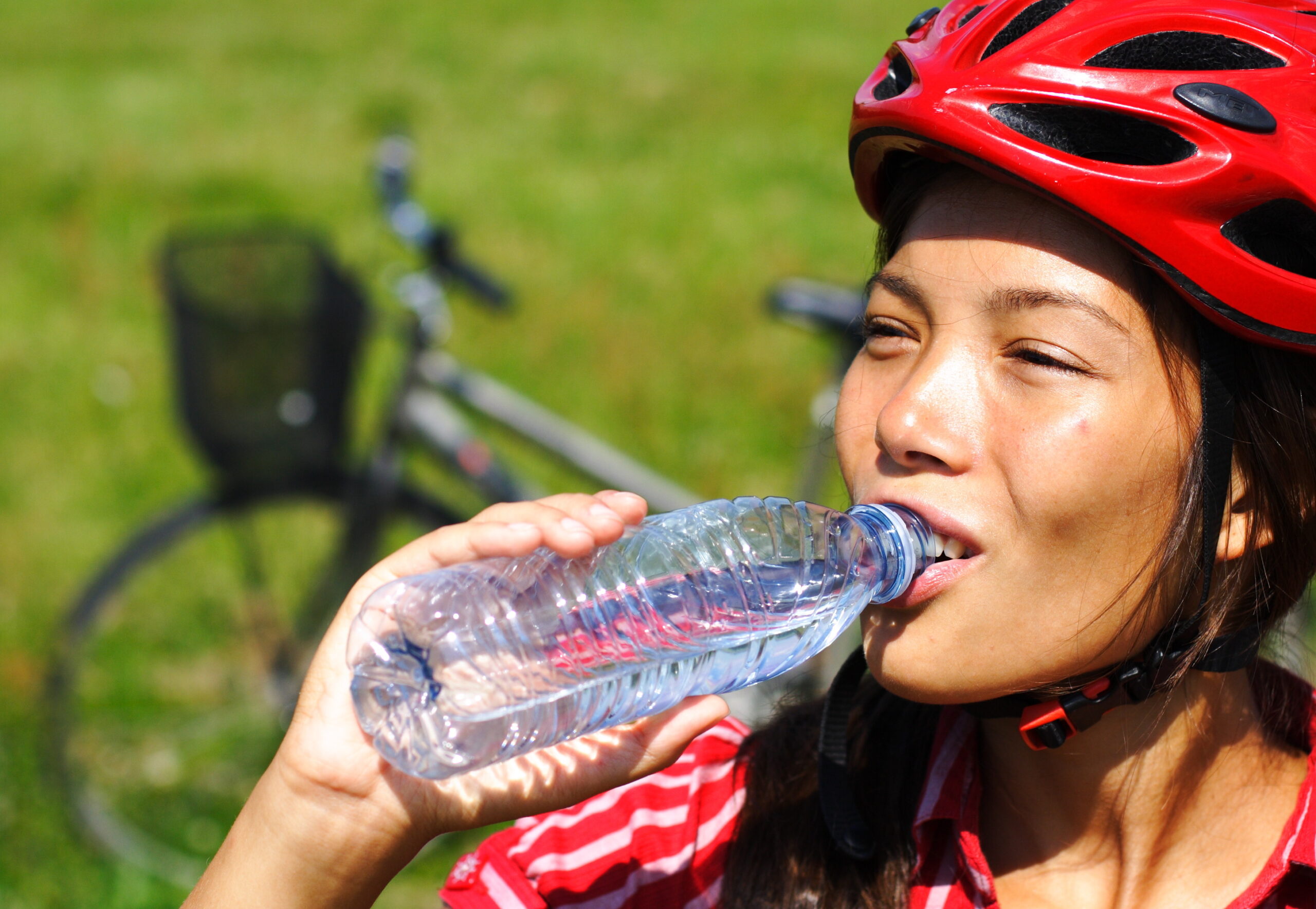When you think of a Texas summer, things like pool days, water sports, and barbeques probably come to mind. But these hot days in the sun and long nights outdoors can deplete our bodies of fluids and nutrients. Dehydration is one of the most common reasons for an ER visit during summertime. After all, the human body is made of 60% water, so it’s only natural that it’s vital to our health.
Beat the heat this summer with these tips to prevent dehydration!
Causes, Risks, and Symptoms
Indicating signs of dehydration include low energy levels, dark-colored or odorous urination, and muscle fatigue.
Here are a few potential causes of dehydration:
- Drinking alcohol
- Humidity or hot weather
- Urinating frequently
- Fever
- Exercising and sweating
- Diarrhea and vomiting
- Heavy or dark clothing
Those who run the highest risk of dehydration are older adults, people who exercise or work outside, people with chronic illnesses, and infants and children.
Since babies can’t tell you what they’re feeling, it can be challenging to figure out what’s wrong. If you notice any of the following signs, give us a call at 469-782-0620 and seek medical help immediately.
Signs of dehydration in infants include:
- Irritable
- Tearless crying
- Dry tongue and dry mouth
- Sunken soft spot on the top of the skull
- Sunken cheeks and eyes
- Not urinating regularly (a dry diaper for three or more hours)
Combat
Not sure if you’re drinking enough water? Studies show that by the time you feel thirsty, you’re already experiencing dehydration.
According to The National Academies of Sciences, Engineering, and Medicine, healthy adults need the following:
- About 3.7 liters of water daily for men (approximately 15.5 cups)
- About 2.7 liters of water daily for women (approximately 11.5 cups)
A survey using 3,003 Americans found that a whopping 75 percent were chronically dehydrated, despite drinking about eight servings of hydrating drinks a day. This offset comes from drinking caffeinated beverages, drinking alcohol, and eating foods high in sodium.
Here are three simple steps you can take to live a more hydrated life:
1. Refuel
The majority of fluids you retain are lost overnight while you sleep, so drinking a large glass of water (without ice) first thing in the morning helps you start the day off on the right foot by restoring hydration.
2. Eat your water
Did you know that about 20 percent of your daily liquid intake comes from food? Eating foods like watermelon, cherry tomatoes, oranges, carrots, apples, celery, and cantaloupe help keep you hydrated and healthy! Try to incorporate these foods into your daily diet.
3. Make it a goal
Make a hydration goal and hold yourself accountable. Invest in a large tumbler or reusable water bottle and aim to drink and refill it 2-3 times while you work during the day.
Take Care
When you’re dehydrated, the best treatment is to replenish your body with the fluids it’s missing. Sometimes all this takes is consuming water, Gatorade, and liquids with electrolytes. In more severe cases, an IV with fluids and other medical treatment may be necessary.
Visit our facility if you’re experiencing serious symptoms of dehydration, like low blood pressure, rapid heartbeat and breathing, loss of skin elasticity, sunken in eyes, or delirium.
Prolonged dehydration is not something to ignore. In extreme cases, it can lead to complications like urinary and kidney issues, seizures, injury, brain damage, low blood volume shock, heat exhaustion, or heat stroke.
We are equipped to treat all medical needs, including those that are more prevalent during the summer months. Wylie ER is conveniently open 24 hours a day, seven days a week, every day of the year. For a full list of services we provide, click here or call us at 469-782-0620.
Disclaimer: As a service to our readers, Wylie ER and Nutex Health state no content on this site, regardless of date, should ever be used as a substitute for direct medical advice from your doctor or other qualified clinicians.
Nutex Health, Inc supports you and your family’s health. You can depend on Wylie ER or any of our concierge-level medical facilities to deliver the emergency care you deserve, 24 hours a day, 365 days a year.





Comments are closed